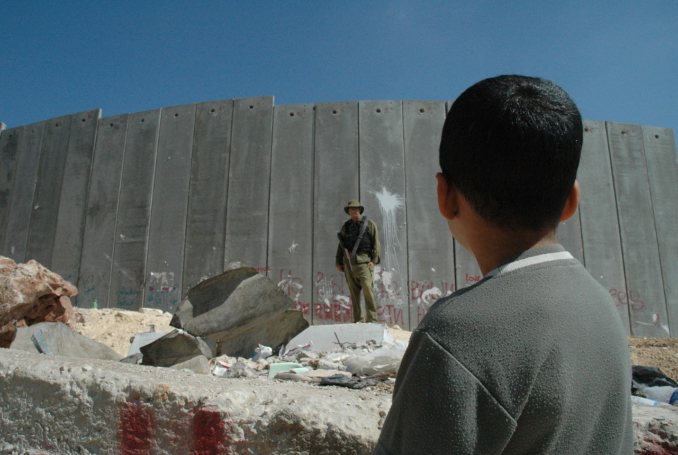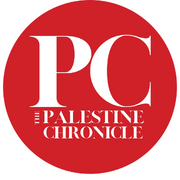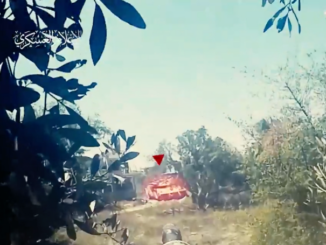
Much like other colonial endeavors, Zionism has largely succeeded at making the colonization of Palestine about the colonizers rather than the colonized.
Thanks to the evident failure of the two-state proposal and to the efforts of dedicated Palestinians and allies, the “One Democratic State” solution, the Palestinian people’s century-old vision for liberation in their land, is gaining traction again both in Palestine and abroad.
Yet the question arises: what “One Democratic State” are we talking about — Palestine, Israel, or Palestine-Israel? Does its name even matter? What guiding principles can help us adopt and present a political narrative that is both accurate and effective?
First of All, What is the Land’s Name?
The name of the state administering the affairs of a society living in a certain territory is, simply, the name of that territory: The state ruling over Egypt is Egypt, the state ruling over France is France and the state ruling over Thailand is Thailand. What, then, is the name of the land between the river and the sea?
The answer to this question is less contentious than one might think: Theodor Herzl, Arthur Balfour, the World Zionist Organization, the British Mandate, and the League of Nations called it Palestine. The “Jewish Agency for Israel” was originally called the “Jewish Agency for Palestine”. Shimon Perez and Golda Meir held Palestinian citizenship. Indeed, Zionists know and admit that “Palestine” has been the land’s name for over 2500 years.
So, the state’s name should be Palestine — but does it really matter?
Obviously, the establishment of a secular, democratic state requires more than a change of name. It implies the complete dismantling of all of the laws, institutions, administration and policies that discriminate in any way against non-Jews and that make Israel the settler-colonial, Zionist state it is.
This includes, among others, the “Basic Law” that states that “Israel is the historical homeland of the Jewish people” and omitting any reference to the rights of any non-Jewish citizens, the so-called “law of return” that discriminates against non-Jewish non-citizens and enable the ongoing colonization of Palestine, the denial of the right of return to millions of Palestinian refugees, the theft of Palestinian land under the “Absentees’ Property Law” and the “Land Acquisition Law”, discriminatory land allotment and administration policies (including by means of the Jewish National Fund and so-called admission committees), segregation in terms of education, segregation in terms of the distribution of resources and social welfare, tolerance of murder of non-Jews by the IOF and so-called civilians, the blockade of Gaza, and countless other aspects of occupation (for the skeptical, here’s a compilation of links documenting all of these).
Yet, does the name matter? Well, if it didn’t, the Zionists would not have changed it. Names have meaning. “Israel”, a Hebrew word derived from Judaism and therefore exclusive of non-Jews, perfectly represents the nature of the current racist state. Speaking of the “democratic state of Israel-Palestine” thus fails to push back against the hegemony of the settler-colonial narrative.
Instead of presenting the struggle as one of natives’ liberation from settlers, it implies the colonizers and the colonized are on equal footing. This normalization with the Zionist narrative that focuses on “peace between two peoples” rather than “peace through decolonization” also puts the rest of our liberation discourse, such as the natives’ right to armed resistance against their occupiers, at danger.
On the other hand, “Palestine” refers, not to an Arabic or Islamic identity, but to a territory where Palestinian Jews, Christians, Muslims and others have lived in harmony for thousands of years — right until the creation of Israel. “Palestine” is thus a testimony to the plural, multi-cultural history of Palestinian society, and a fitting name to indicate the nature of the democratic state that will function, not as a war machine exclusive to some, but as an apparatus to administer the affairs of society, regardless of how its citizens choose to identify.
But wouldn’t that make us lose support among non-Palestinians, particularly Jews?
Much like other colonial endeavors, Zionism has largely succeeded at making the colonization of Palestine about the colonizers rather than the colonized. It is easy for those politically active outside of Palestine to fall into this trap, as they are exposed to political narratives that normalize the existence of a state exclusive to Jews, and as their “target audiences” largely consist of non-Palestinians.
Yet, when discussing the liberation of Palestine —or of any other land, for that matter— it is the native population that should be the focal point of attention. Failing to do so may garner more support from non-Palestinians, but only at the expense of losing Palestinian support and/or “splintering” the Palestinian narrative of decolonization into contradictory and mutually exclusive narratives.
This said, speaking of a Palestinian state will not cost us the support of sincere non-Palestinians. Let’s put things outside their colonial context: Would non-Belgians who move to Belgium or are born there object to the existence or sovereignty of the Belgian state?
Quite the contrary, legitimate residency in a land or naturalization there is contingent on one’s recognition and support of the state of the land. In a non-colonial context, non-Palestinians wishing to live in Palestine would be welcome to do so under the sovereignty of the Palestinian state, i.e. in compliance with its laws and migration and naturalization policies.
Decolonization implies, simply, a return to Palestine’s natural state of affairs: Palestinian sovereignty on Palestinian land. Any objection to it would therefore seem to stem from Zionist hegemony that normalizes, not the mere presence of Jews in Palestine (which has been the case for millenia), but the existence of a state exclusive to Jews in Palestine.
By choosing a name other than the land’s name, Israel actually went even further than most other colonial endeavors: France dared not change Algeria’s name to some French name, the European colons still called their united states the United States of America, and the Afrikaans still called their apartheid state South Africa. Zionism’s effrontery is no reason to tone our liberation discourse down. Quite the contrary. Instead of surrendering to the colonial narrative, our liberation discourse should seek to right the wrong by calling a cat a cat, calling settler-colonization settler-colonization, and calling Palestine Palestine.
Rather than viewing the native Palestinian narrative as an obstacle to democracy, justice and peace, let us view it as an opportunity to present a counter-hegemonic narrative that is completely freed from identitarianism. In order to justify its colonization of Palestine, Zionism has obscured reality by claiming that “Palestinian” and “Jews” are mutually exclusive terms.
The reality of the matter is that “Palestinian” refers to the society living in Palestine, including Jews, while “Jewish” refers to an individual’s religion, culture or identity, regardless of the society they belong to; and that the colonization of Palestine is not a religious war or a clash of civilization, but rather the political choice of a number of non-natives to supplant a native society instead of integrating it.
It is this choice that is at the root of a cycle of injustice and violence that can only be ended by the defeat of the settler-colonial enterprise of Israel and the establishment of the plural, inclusive, democratic state of Palestine, for all its citizens, from the river to the sea.

– Alain Alameddine is a member of Lebanese political party Citizens in a State and an activist in the One Democratic State Initiative. They contributed this article to The Palestine Chronicle.









Excellent article 👏🏽 I noticed there is a mention of links that the author refers to that we should check out, but the hyperlinks aren’t included in the edit